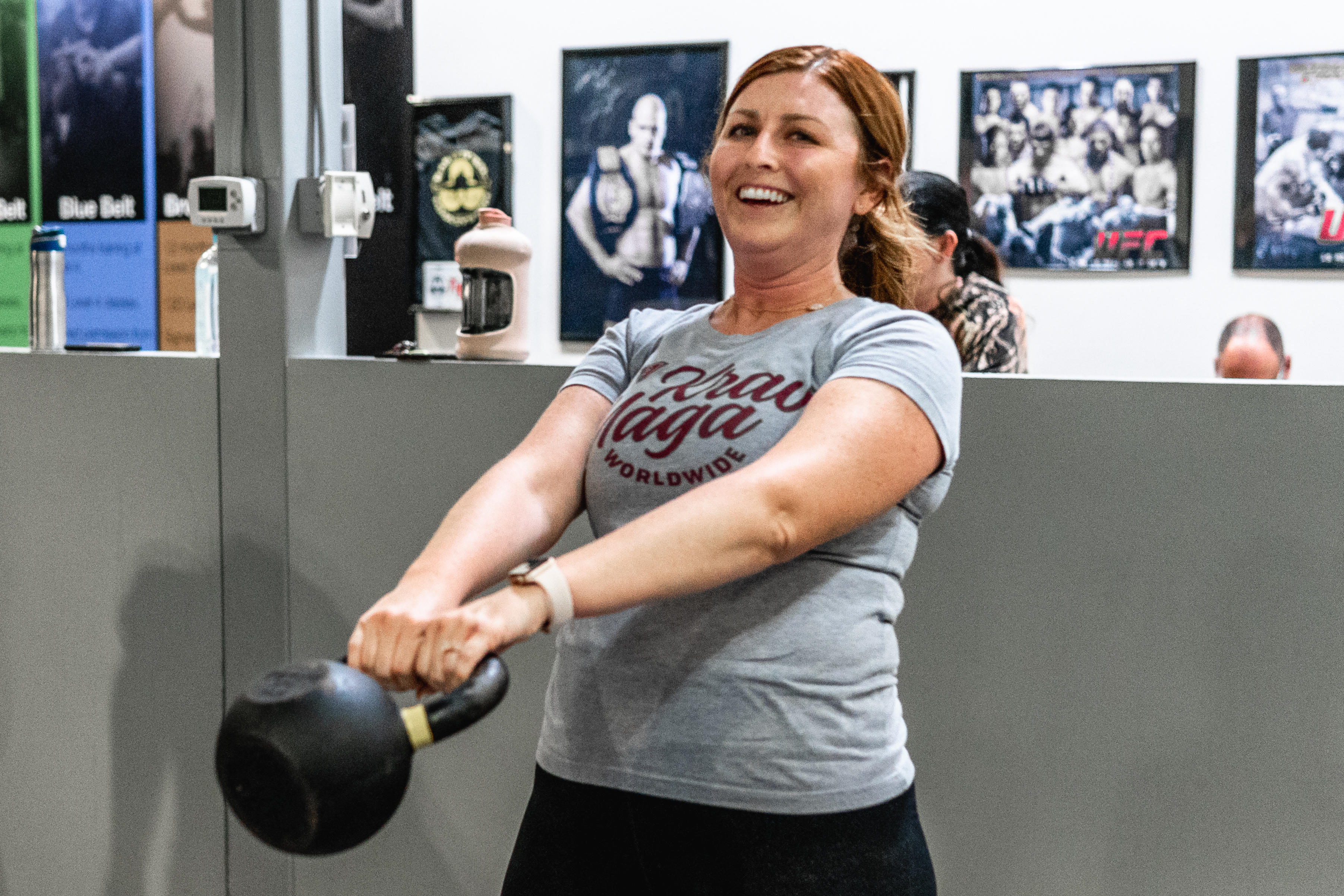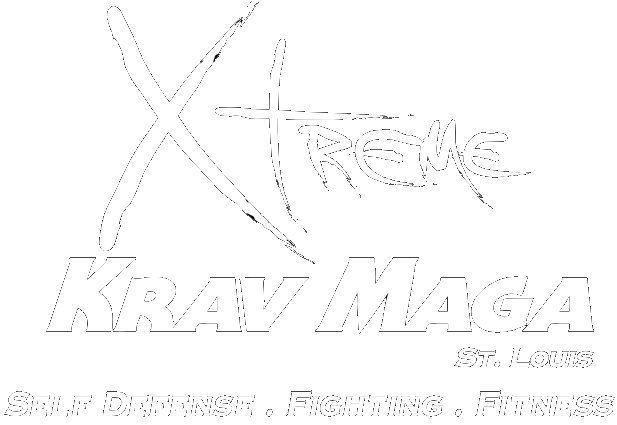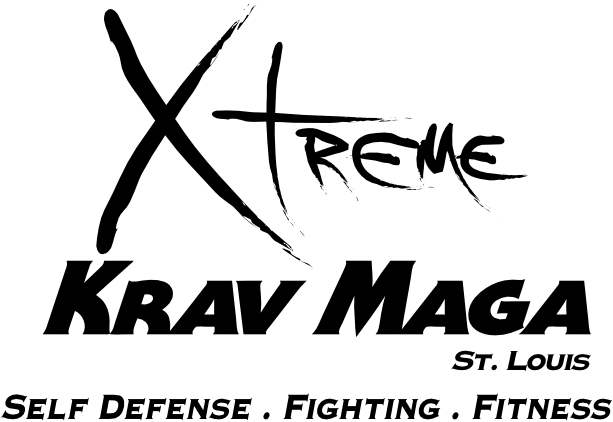
A Jakcsy
via Google
I thoroughly enjoyed the classroom environment and the techniques I learned will be helpful in my future career

Anthony Cook
via Google
I just signed up and I'm really enjoying it so far, as well as the instructors and the way they teach.

Jack Schmidt
via Google
Great people, nice facility. Classes are fun and engaging.

Maria Mudd
via Google
Took a class through our gym. Our instructor was phenomenal! The class was fun and informative. I walked away with a few bruises but most importantly confidence!

Dennis Kiefer
via Google
Great program for learning self defense and getting fit. Staff is friendly and helpful - they make you feel welcome. I have been in sessions with several different instructors to include the owner, Steve Sulze. All are very competent, skilled in KM and truly want to help students learn properly. The Fenton facility is well equipped and maintained - very clean. There are several venues available for getting fit and advancing self defense skills. Would recommend to anyone looking for self improvement.

Chandra Fessler
via Google
I was looking for a place that offered classes for both myself and my son. XKM provides that, plus, while getting a workout we are learning a life skill, building confidence, and having fun talking about what we learned in our classes at home. The instructors are very knowledgeable and professional. I call XKM my life gym!

Christy Hanson
via Google
I absolutely love the people at XKM, both the instructors/staff and the other attendees. It's like a big family. Learning Krav takes a lot of trust and vulnerability (some of the moves are pretty intimate, lol!), and I couldn't ask for a better group of people to get close with. The workouts are amazing, I've learned a ton, gained muscle, lost weight, and improved my mental health. XKM is my happy place!

Josh McCollum
via Google
Great people great place. Learn so much each time. Great teachers and always informative.

Mohsen Faten
via Google
Great program for learning self defense and getting fit

Bradley Lentz
via Google
The new facility in Fenton is fantastic. Multiple different mat/instruction areas. Restrooms, showers, member lounge. The instructors are knowledgeable and every class is not only informative but a good workout for your mind and body. Everyone is friendly from staff, instructors, and other members.

Sherrie Trott
via Google
Love the facility and outstanding instructors.

Mark Moore
via Google
The classes and instructors are always fun but challenging and I really like the emphasis on training for real world scenarios.

Joel Akins
via Google
Clean Facilities, awesome instructors, front desk staff is really nice and informative.

Robert Brummel
via Google
I enjoy learning new techniques in the different classes and your awesome staff

Patrick Hutsler
via Google
I become increasingly more dangerous with every opportunity to refine my skills in self defense. Steve Sulze and Eric Isaac always help refine my skills. Being increasingly more Dangerous makes me Safer!

Daniel Meyr
via Google
Great classes great instructors, I’ve been going for 12 years now my daughter is a member.

david chronister
via Google
I am new to working out and material arts but the staff at XKM give me confidence to keep on training.the facility is very nice and very clean everyone is helpful and patient with me I look forward to going to train and every class I have learned something that helps me train better

Doug Jacquot
via Google
I have been in the KM program for 7-8 weeks and it has been great, the instructors are very nice and really know what they are teaching, I have learned some really cool self defense techniques, I highly recommend the program to anyone!

David Kamadulski
via Google
You have great instructors and a sense of being part of something great.

Debbie Fisher
via Google
This place deserves the respect. Very impressed!

Denny Robert (Denny)
via Google
The community at XKM is great. I've enjoyed both the instructors and getting to know other students. Classes are fun and challenging. Totally recommended.

Steve Benko
via Google
The instructors are very knowledgeable! They are great at helping me fine tune my strengths and focus on areas I can improve. Training feels personalized.

Ryan Carbery
via Google
Facility is top notch and well maintained, everyone is welcoming and full of knowledge. Great approach to teaching something serious while maintaining a laid back approach.

rebecca boerner
via Google
Love the quick tour of the whole building and the instructor was great

Sheila Byrd
via Google
I'm not just learning techniques, I'm having the time of my life! Not only are the movements are functional, fluid- the instructors make it a fun experience. Plus, the skills/techniques taught are broken down into bite-sized bits, so I can easily learn and master new skills.
✅️ Clean facilities
✅️ Classes begin and end promptly as scheduled to respect your time
✅️ Scenario and context based drilling
✅️ Respectful peers
✅️ Friendly & insightful management and coaching team

Samuel sketers
via Google
XKM is amazing. I recently joined because I was new to Saint Louis and immediately felt welcomed and supported as a white belt learning Krav. The classes are fantastic exercise and the camaraderie really pulls everyone together, almost making things a group effort at times. The instructors are very knowledgeable. Instruction at XKM emphasizes practicality. You will walk away having learned something. You will not be disappointed. XKM has all the resources to help you develop physically and mentally, however you might choose to do so. I highly recommend joining XKM.

Jeffrey Pauly
via Google
Great place. Great instructors. More than just a gym, they form a community with the members.

Holly Henske
via Google
The instructors are great. They push us to work harder and perfect our form. They break techniques down so we can practice them step by step. And the drills are fun, but more importantly, very effective for training muscle memory. There is enough repetitive from week to week that we get a chance to really learn the moves, but not so much that it vecomes boring. There's something new almost every class. And there are plenty of class times to choose from.

Alex Burchardt
via Google
I’ve been attending the women’s self defense classes for about 2 months. I LOVE them! Alison is a fantastic teacher. There is no reason to be intimidated, anyone can do this. Great workout, empowering, and such important life skills. Every staff member is welcoming. Fenton location is convenient. The workshops are also a great way to preview the space and vibes.

Rebecca Wilkins
via Google
I am very glad I joined and the extreme fitness class on Monday and Wednesday at 5pm are great. The instructor is awesome.

Sarah Schaefer
via Google
Heidi and Joel at the front desk are very personable, and knowledgeable. They know everyone on a first name basis, and make you feel right at home. We love that the classes are flexible to our crazy schedule. My daughter loves Mr. Tims class, but all the instructors there are wonderful! She always has a blast in class. Highly recommend!!

KateLynne Frank
via Google
Training here is a blast. The instructors are knowledgeable and helpful. The classes are fun. The gym is nice. Two enthusiastic thumbs up.

Shannon Moses
via Google
I just joined a couple weeks ago and I couldn’t be happier. All of the staff is extremely friendly, fun, and truly want to see you succeed. Joel is always there to greet you with a smile, and pop in classes to tell people how great they are doing. There is always fun music playing, and you really get in the zone. You jump right into the classes, and people that have already been taking the classes, help you as well. It’s only been 2 weeks and I can already feel my body getting tighter, and have learned awesome self defense moves.
This is a great place- highly recommend!

Michael Hall
via Google
Great Trainers, Excellent Environment for Learning, Been Training here for a few months and the experience has been wonderful. Top Tier Gym!!!

Fatima Omerovic recommends Xtreme Krav Maga & Fitness - Fenton
via Facebook ·
XKM has been a game changer to me. I spent 2 months looking for a kickboxing gym to join and from the moment I walked in and meet Joel's welcoming smile and knowledge, I was hooked. Not only is he knowledgeable about what's going on at XKM at all times but he's also a kick ass instructor. I've made several friends and I look forward to coming in, releasing some stress, shooting the breeze, and the best part, getting an amazing workout and life skill from some of the best instructors I have ever seen.

Tyler Francom
via Google
I've been going here for about 3 months now. The staff have been exceptionally awesome. It's like saying hi to my well known friends every time I go in. The instructors are very knowledgeable. They are really good at demonstrating different skills, and are great at helping walk me through different moves that I struggle with. My kids have been going about a month longer than me. They absolutely love when their training days come up. The kid instructors are great at helping them through learning new skills. They really make a point of giving individualized attention to the kids who struggle and need an extra hand to progress.
10/10, I couldn't more highly recommend this gym

Azin Kaiser recommends Xtreme Krav Maga & Fitness - Fenton
via Facebook ·
Awesome place and the people are fantastic! They make learning fun. It has been wonderful for my kids too. They are obsessed with this place. The athletic training has been really good for them. My son is 7 and he can do real push-ups with the perfect form thanks to this place. My daughter loves this place loves learning with the other kids. I love every class they have for me and the more I go the more I love the classes. My husband hates working out and even he loves this place.

Rob Smith recommends Xtreme Krav Maga & Fitness - Fenton
via Facebook ·
Recently came into contact with the owner. Seems to be a stand up leader who respects both his team's and his students' time. I had an appointment with him that was running long and as soon as he realized he could be late for a class, he respectfully made it clear that his students needs come before his own interests. That's a business with integrity. I have family members who swear by his training as well. Worth checking out.

Abigail Holbrook recommends Xtreme Krav Maga & Fitness - Fenton
via Facebook ·
The people who work here are amazing. I'm currently taking an intro to hand guns women's class and loving it! so much fun and learning a lot! making friends too!!

Arnold Keen recommends Xtreme Krav Maga & Fitness - Fenton
via Facebook ·
The active Shooter Defense class was excellent and the staff doing the class were excellent and extremely well-informed. I think every church, business, and restaurant should take this course and be prepared for the unexpected. It can happen anywhere at any time. Better to be prepared and never needed than unprepared and it does happen. Unprepared means DEFENSELESS.

Stephanie Curtis Lacavich recommends Xtreme Krav Maga & Fitness - Fenton
via Facebook ·
I've been to several gyms that included Kickboxing or Jiu Jitsu and this is nothing like those. I love the intensity and the challenges of the all of classes and every instructor legitimately know their stuff. Krav Maga is by far one of my favorites. Plus I'm also marathon training and this is by far the best cross training I've ever done.

Sarah Gray recommends Xtreme Krav Maga & Fitness - Fenton
via Facebook ·
The atmosphere at X-treme Krav Maga is amazing. I felt so welcomed and such a sense of community and teamwork. I can't wait to come back!

Rosie Hurley recommends Xtreme Krav Maga & Fitness - Fenton
via Facebook ·
Krav Maga is perfect for anyone looking to improve their self-defense skills and boost their confidence. Highly recommend

Matthew Quick recommends Xtreme Krav Maga & Fitness - Fenton
via Facebook ·
A clean gym , solid schedules, with personable , and knowledgeable instructors. these combined with a staff that understands that we must evolve for an ever changing world leads to a training curriculum that is going to grow with you and challenge you .
whether you're looking to train to defend yourself and increase your peace of mind , work on your personal fitness , or perhaps you just need a physical release of aggression after a bad day , with classes including BJJ , kickboxing , firearms training ,a weight room, and of course , Krav Maga , it's a great place that can fill your needs .



















































